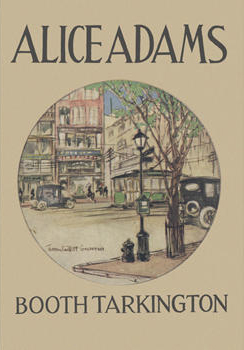
Alice Adams is a 1921 novel by Booth Tarkington that received the 1922 Pulitzer Prize for the Novel. It was adapted as a film in 1923 by Rowland V. Lee and more famously in 1935 by George Stevens. The narrative centers on the character of a young woman who aspires to climb the social ladder and win the affections of a wealthy young man named Arthur Russell. The story is set in a lower-middle-class household in an unnamed town in the Midwest shortly after World War I.

Dame Ivy Compton-Burnett, was an English novelist, published in the original editions as I. Compton-Burnett. She was awarded the 1955 James Tait Black Memorial Prize for her novel Mother and Son. Her works consist mainly of dialogue and focus on family life among the late Victorian or Edwardian upper middle class.

A domestic worker or domestic servant is a person who works within a residence and perform a variety of household services for an individual, from providing cleaning and household maintenance, or cooking, laundry and ironing, or care for children and elderly dependents, and other household errands. The term "domestic service" applies to the equivalent occupational category. In traditional English contexts, such a person was said to be "in service".

Count Karlstein, or the Ride of the Demon Huntsman is the first children's novel written by British author Philip Pullman. It was published in 1982. The story was originally written by Pullman to be performed as a school play at Bishop Kirk Middle School, Oxford, where Pullman was an English teacher.

A housekeeper is an individual responsible for the supervision of a house's cleaning staff. The housekeeper may also perform the cleaning duties themself.

George James Cholmondeley, 1st Marquess of Cholmondeley,, styled Viscount Malpas between 1764 and 1770 and known as The Earl of Cholmondeley between 1770 and 1815, was a British peer and politician.
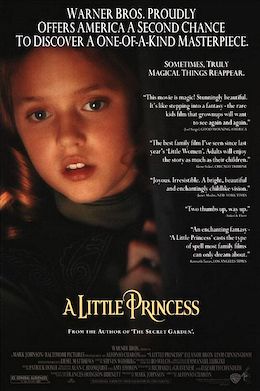
A Little Princess is a 1995 American family drama film directed by Alfonso Cuarón and starring Eleanor Bron, Liam Cunningham, Liesel Matthews as Sara Crewe with, supporting roles by Vanessa Lee Chester, Rusty Schwimmer, Arthur Malet and Errol Sitahal. It was distributed by Warner Bros. through their Warner Bros. Family Entertainment label.

A Little Princess is a 1917 American silent film directed by Marshall Neilan based upon the 1905 novel A Little Princess by Frances Hodgson Burnett. This version is notable for having been adapted by famed screenwriter Frances Marion.
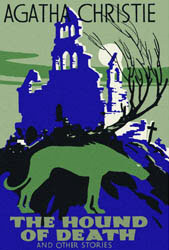
The Hound of Death and Other Stories is a collection of twelve short stories by British writer Agatha Christie, first published in the United Kingdom in October 1933. Unusually, the collection was not published by Christie's regular publishers, William Collins & Sons, but by Odhams Press, and was not available to purchase in shops.
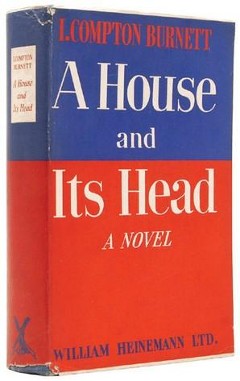
A House and Its Head is a 1935 novel by Ivy Compton-Burnett, republished in 2001 by New York Review Books with an afterword by Francine Prose and in 2021 by Pushkin Press with an introduction by Hilary Mantel. The novel, which focuses on an upper-middle class Victorian household in the 1880s, explores themes such as family secrets and the subordination of women by men. When asked in 1962 which of her novels were her favourites, Compton-Burnett referred to Manservant and Maidservant and "the first two-thirds" of A House and Its Head.

Christine Terhune Herrick was an American writer who wrote mostly about housekeeping. She published articles in Harper's Bazaar and was also a journalist.
Joan de Geneville, 2nd Baroness Geneville, Countess of March, Baroness Mortimer, also known as Jeanne de Joinville, was the daughter of Sir Piers de Geneville and Joan of Lusignan. She inherited the estates of her grandparents, Geoffrey de Geneville, 1st Baron Geneville, and Maud de Lacy, Baroness Geneville. She was one of the wealthiest heiresses in the Welsh Marches and County Meath, Ireland. She was the wife of Roger Mortimer, 1st Earl of March, the de facto ruler of England from 1327 to 1330. She succeeded as suo jure 2nd Baroness Geneville on 21 October 1314 upon the death of her grandfather, Geoffrey de Geneville.

Lady Charlotte Finch was a British royal governess. She was governess to the children of King George III and Queen Charlotte for over thirty years, holding the position from 1762 to 1793. Her parents were courtiers Thomas Fermor, 1st Earl of Pomfret, and Henrietta Louisa Jeffreys. The couple were educated and frequently travelled with their growing brood of children to the continent. Charlotte, like her sisters, was well educated; in 1746, she married the Hon. William Finch and had issue including George Finch, 9th Earl of Winchilsea.

Sapphire Battersea is the 2011 sequel to Hetty Feather, written by English author Jacqueline Wilson. It is the second installment in the Hetty Feather Trilogy. The story continues where Hetty Feather left off. Hetty, now 14 years old, is discharged from the Foundling Hospital and begins life as a scullery maid.
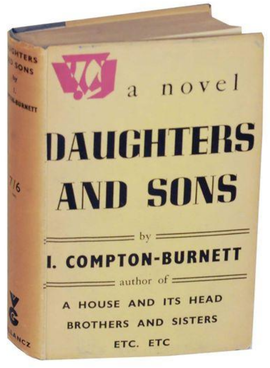
Daughters and Sons is a 1937 novel by the English novelist Ivy Compton-Burnett. Written in the author's characteristic dialogue-heavy style, the novel explores the power struggles within a large family household, presided over by its tyrannical matriarch, Sabine Ponsonby, and her imperious daughter Hetta.
Gertrude Russell, Duchess of Bedford, formerly the Hon. Gertrude Leveson-Gower, was the second wife of John Russell, 4th Duke of Bedford. She was the eldest daughter of John Leveson-Gower, 1st Earl Gower, and his wife, the former Lady Evelyn Pierrepont. She married the Duke of Bedford on 2 April 1737.
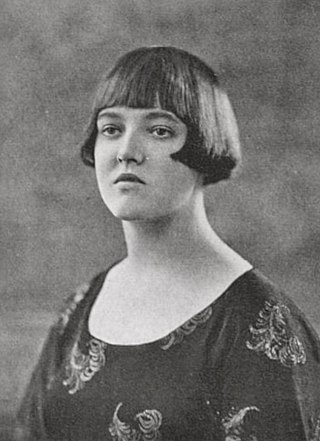
Elizabeth Miriam Squire Sprigge was an English novelist, biographer, translator, and children's writer.
Morgan Lewis Livingston, was an American heir and member of the prominent Livingston family from New York.

Lady Huntworth's Experiment is a three-act comedy by R. C. Carton, first presented in London in 1900. It depicts an aristocrat working under an assumed name as a cook, and finding happiness with a retired military man. After its West End run, it was played by touring companies around Britain, and was staged on Broadway and in Australia and New Zealand.
















